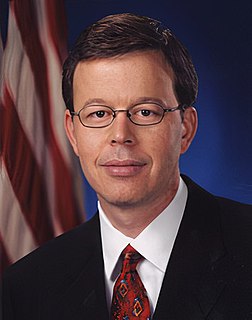A Quote by Jared Bernstein
The black unemployment rate has to be twice that of the white rate in the US. If the national unemployment rate were 6.8 percent, everyone would be freaking out. We ought to not take too much solace in the 6.8 percent, but ask ourselves what can we do to bring that down to white rates, which are below 4 percent now. Some of that has to do with education, but that's just part of the story. You find that those unemployment differentials persist across every education level. I think it means pushing back on discrimination and helping people who can't find work get into the job market.
Quote Topics
Across
Ask
Back
Below
Black
Bring
Discrimination
Down
Education
Every
Everyone
Find
Freaking Out
Get
Helping
Helping People
Job
Just
Level
Market
Means
Much
National
Now
Ought
Ourselves
Out
Part
People
Percent
Persist
Pushing
Pushing Back
Rate
Rates
Solace
Some
Story
Take
Think
Those
Too
Too Much
Twice
Unemployment
Unemployment Rate
Us
Were
Which
White
Work
Would
Would Be
Related Quotes
Let's say hypothetically, knowing what we know now about public policy, that we could close the education gap so that it was only a couple percentage points, and we could make sure that hiring barriers and educational barriers had been leveled down, and unemployment among African Americans right now instead of being double was only 10 percent higher than white unemployment - if we got to that point , America as a whole would be a lot richer.
In the Great Depression in which I grew up and remember vividly, unemployment was over 25 percent, and over 35 percent where I lived. A grown man would work all day, 16 hours, for a dollar. I remember hundreds of people walking by, people who had come down from the North just to get warm. They would come to our house as beggars even though they might have a college education. People didn't have money. They bartered; they'd trade eggs or pigs. It was just completely different.
































